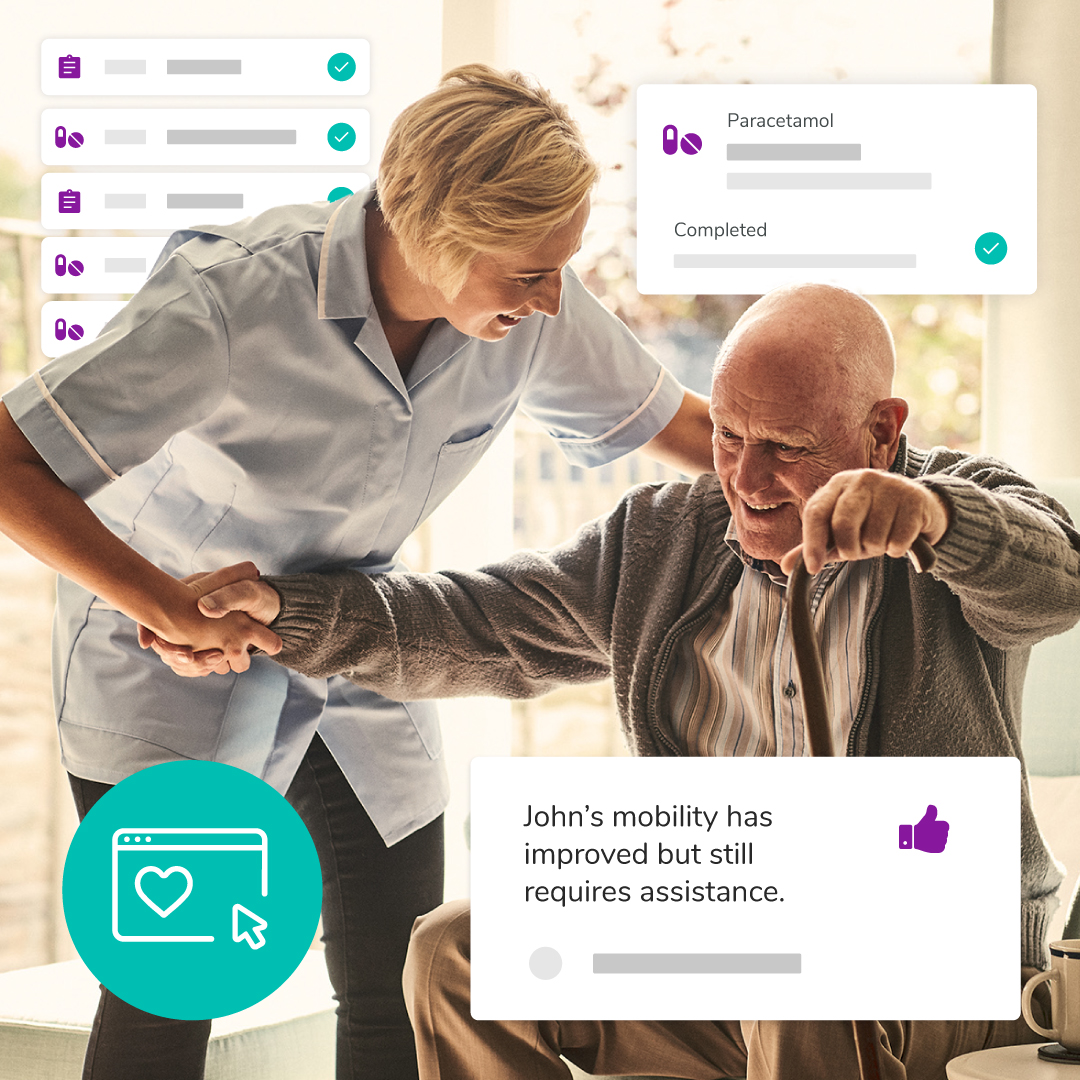Domiciliary care, also known as home care, is provided to people who may be unable to leave their homes or manage fully independently due to disability, illness, or age. It can include a wide range of services such as personal care such as bathing and dressing, medical care, and social support. CareLineLive provides all-in-one software for domiciliary care agencies to use to manage the care they provide. It helps improve the agency’s efficiency, capacity and compliance as well as improving the quality of care they provide and the lives of those receiving it.
CareLineLive is just one example of the many innovations that home care has witnessed in recent years. Other key innovations include:
Telemedicine: Telemedicine allows healthcare providers to remotely monitor the health of their patients and provide consultations via video conferencing or phone. It can be used to provide consultations, diagnoses, and treatment recommendations without the need for in-person visits. This can be especially useful for individuals who have difficulty leaving their homes due to mobility issues or who live in rural areas with limited access to healthcare.
Wearable technology: Wearable devices such as fitness trackers and smart watches can help healthcare providers to remotely monitor the health of their patients. For example, a wearable device could track the number of steps a patient takes, sleep patterns or their heart rate, and send this information to the healthcare provider for analysis.
Smart home technology: Smart home technology, such as smart thermostats and smart doorbells, can be used to make it easier for individuals to control their environment and stay safe at home. For example, a smart thermostat can be programmed to automatically adjust the temperature in the home to a comfortable level, while smart lighting systems can be controlled remotely or set to turn on and off at specific times. Smart home technology can also help to improve the safety and security of individuals receiving domiciliary care, with devices such as motion sensors and video doorbells helping to alert caregivers to potential issues.
Robotics: There are a number of companies working on developing robots that can assist with tasks such as medication reminders and basic caregiving tasks. While these technologies are still in their early stages, they have the potential to revolutionize the way domiciliary care is delivered in the future.
Virtual reality: Virtual reality (VR) technology has the potential to be used for a range of applications in domiciliary care, such as providing social support to individuals who are isolated due to their illness or disability. For example, a VR headset could allow an individual to attend virtual social events or visit virtual locations, helping to combat loneliness and improve quality of life.
Overall, the innovations mentioned above have the potential to significantly improve the quality of domiciliary care and make it more accessible to individuals who need it. By leveraging technology and other innovations, caregivers are able to provide more personalized and effective care, while also helping individuals to maintain their independence and improve their quality of life.
Do note that some of these technologies are still in their early stages and will require further development and testing before they can be widely adopted. CareLineLive, on the other hand, is available to home care agencies now to improve efficiency and performance. Our mantra is ‘better systems mean better care’ and we continue to develop our software to achieve that goal.



